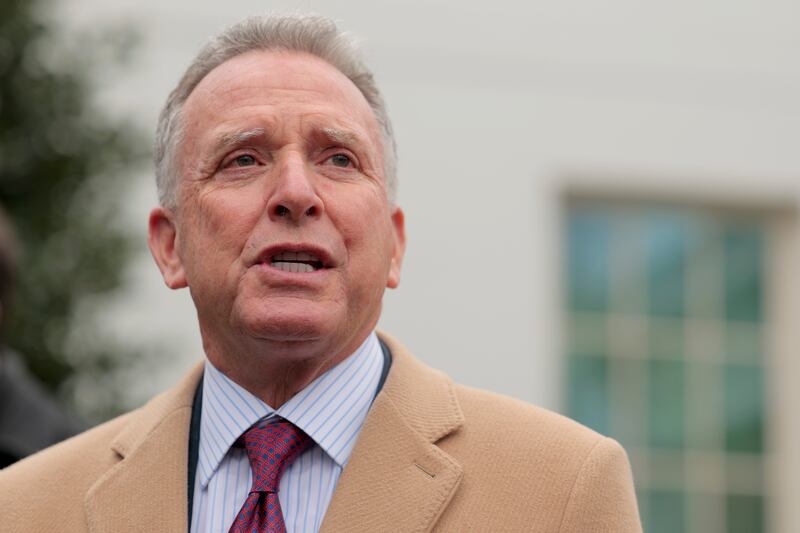The Wall Street Journal editorial board warned President Donald Trump’s administration to stop trying to blame the press for its disastrous use of an unsecured group chat to coordinate military strikes in Yemen.
In a scathing op-ed published Wednesday night, the Journal blasted the administration’s “defensive insistence” that the chat didn’t disclose any “war plans,” calling it a “weak attempt at obfuscation.”
“The Administration seems to think it can bully its way through anything by shouting Fake News and attacking the press,” the op-ed said.
On Monday, The Atlantic's Jeffrey Goldberg published an explosive story about how top Trump officials coordinated military strikes against the Houthis, an Iran-backed terrorist group wreaking havoc on shipping traffic in the Suez Canal, using a unsecured commercial messaging app called Signal.
The information shared by the group’s 18 members—which included National Security Adviser Mike Waltz, Defense Secretary Pete Hegseth, Vice President JD Vance, and Secretary of State Marco Rubio—aligned perfectly with a March 15 strike that killed 53 people.
The administration has repeatedly claimed the group wasn’t discussing “war plans” despite Hegseth sharing detailed information about weapons, timing, and attack sequences. The defense secretary has nevertheless accused the media of spreading “hoaxes.”
On Wednesday, White House press secretary Karoline Leavitt claimed in a social media post that The Atlantic had “conceded these were NOT ‘war plans’” because a follow-up headline described the chats as “attack plans.”
The Journal’s editors apparently did not find that semantic difference convincing.
The information Hegseth shared “was obviously sensitive information about a pending attack, and in the wrong hands it could have compromised the mission,” the op-ed said.
The editorial also addressed concerns that group chat member Steve Witkoff—Trump’s envoy attempting to negotiate an end to the wars in Gaza and Ukraine—was in Moscow to meet with Russian President Vladimir Putin when the group was created.

A previous op-ed had called press reports that Witkoff was receiving the messages on a commercial app while in Moscow a “real security scandal” and “security malpractice.”
Witkoff responded to the piece with a social media post clarifying that he had only traveled to Moscow with a secure phone provided by the government and had no access to his personal devices until he returned from his trip.
The Journal said it was “happy to hear Mr. Witkoff’s explanation, which means we were off the mark in suggesting he might have posed a security risk in Russia.”
“But we’re less reassured by his admission that the Houthi chat messages were still being sent on Signal to his personal phone, given that it might still travel with him on diplomatic missions outside of Russia,” it continued.
The op-ed also questioned why Witkoff was on the Houthi strike chat at all considering it wasn’t part of his portfolio. Surely, access to national-security conversations “ought to be on a need-to-know basis,” it said.
“The White House is allowing its mistake to dominate the news for days and devolve into a larger question of competence,” the editorial board warned. “Sometimes it needs to admit a mistake, take the loss and move on, which we are happy to do.”






